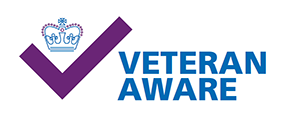Our Wards - Whiston Hospital - Ward 5C – Hyper Acute Stroke Unit (HASU)
Overview
Ward 5C is a 32 bed ward and is located on the 5th floor on the main Whiston Hospital site.
One half of the ward, 16 beds is a called the Hyper-acute Stroke Unit (HASU) this is where patients are cared for in the first 72 hours following a stroke. This half of the ward has a higher ratio of Nursing and Medical staff to ensure closer observation and monitoring of patients in their acute phase following a stroke.
The other half of the ward, the remaining 16 beds is called the HASU Step Down; this area has two functions.
- This is where patients who have had a stroke and who are now in a stable condition are moved to. Patients will continue to receive ongoing medical and nursing care along with assessment and treatments from other members of the multi-disciplinary team.
- Patients over the age of 65 who have not had a stroke and may also be admitted to the step down unit with a medical problem.
Our Consultant, Junior Doctor, Nursing and Therapy teams are all experts in caring for patients who have either had a stroke or are admitted to the ward with a medical condition.
5C stroke unit is the regional Hyper-acute Stroke unit (HASU) this means that it receives patients who are suspected of having a stroke from the Knowsley, St Helens, Halton and Warrington catchment area.
On arrival into hospital, specialists from the Stroke team will assess your condition. Urgent tests will be done to help diagnose and manage your condition.
As part of your assessment you may be linked via ‘telemedicine’ video link to the Stroke Consultant. The Consultant will make a decision regarding your treatment.
The Doctor and Stroke Specialist Nurse looking after you will tell you what type of Stroke you have had. They will arrange the correct treatment and direct admission to the Stroke Unit. On the Stroke Unit, you will be cared for by a multi-disciplinary team of health professionals who specialise in stroke.
Following your admission to the Hyper Acute Stroke Unit, you will be seen by the Stroke Consultant and any important tests will be done. Your observations will be recorded and you will be monitored very closely.
- Visiting
To access visiting times for wards across our hospitals, please click here for more information.
Please note, visiting can be restricted or suspended with immediate effect if there are any safety concerns due to a spread of infection on our wards or in our communities.
To confirm that the ward you are planning to visit is currently open, please call our main number tel: 0151 426 1600
- The Team
The stroke unit is overseen by the Matron, who takes responsibility for delivering the quality and safety of nursing care, along with taking a lead to develop and improve the patient experience.
The Nursing Team: The nursing team is led by the Ward Manager, who ensures delivery of a high standard of nursing care for patients and support for staff.
Ward 5C also has a dedicated Discharge Coordinator who will liaise with the multidisciplinary team, patients, carers and health and social care community colleagues to support our patient’s safe discharge.
Consultants - Cover on the HASU is delivered on a rota basis and so any one of our 8 Stroke Consultants could be responsible for your care.
The Consultants area:
- Dr A Hill
- Dr L Ranga
- Dr S Mavinamane
- Dr L Kalathil
- Dr F Elnagi
- Dr S Ganjam
- Dr H Cooper
The Consultant Stroke Physician will be responsible for your care whilst you are on the ward, your care will also be delivered by other members of the multidisciplinary team, and these include:
- Junior Doctor
- Nurse
- Health Care Assistants
- Housekeeper
- Physiotherapist
- Occupational Therapist
- Speech and Language Therapist
- Therapy Assistant
- Dietician
- Pharmacist
- Orthoptist
- Clinical Psychologist
- Radiographers
- Social Worker
- Discharge Co-ordinator
- Catering Staff
- Domestic Staff
- Porters
- Stroke Association
- Voluntary Workers / Stroke Association
Specialist Stroke Nurses, operate a rota system and provide a 24 hour a day, 7 day a week service, they are:
- Darwin Alboladora
- Stephanie Murray
- Jennifer Ennis
- Reena Dhopate
- Karim Wahab
- Melanie Edwards
- Rebecca Jolly
The Stroke Specialist Nurse is usually the first member of the stroke multidisciplinary team you will meet. The Nurses are highly skilled in the assessment and management of stroke care and will discuss your care with the Stroke Consultant on your initial admission.
We also have a Specialist Nurse, Karen Attwood who has responsibility to provide education and support on the stroke unit to all staff.
Karen also has a role to support patients who have had or are suspected of having a diagnosis of Atrial Fibrillation (AF) with an aim to prevent an initial stroke or further stroke. Atrial fibrillation is an irregular heartbeat and is one of the risk factors for patients who suffer with a stroke.
Physiotherapist (PT): Physiotherapists play an important part along the whole stroke pathway and aim to help you reach their full physical potential and functional ability to help independence.
Occupational Therapist (OT): Occupational Therapists are involved along the whole stroke pathway. They provide practical support to help recovery and overcome any barriers that prevent patients from doing activities that matter to them.
Therapy Assistants (TA): Our team of Therapy Assistants work closely with the Physiotherapists and Occupational Therapists and help with the Therapy Treatment plan.
Speech and Language Therapist (SLT): Speech and Language Therapists assess and support people who may have difficulty with:
- Understanding spoken words
- Using the right words and sentences
- Speech
- Using voice
- Reading and/or spelling
The Speech and Language Therapist will assess the patient’s ability in areas of conversation using simple tasks and activities and will work closely with patients to determine problems eating, drinking and swallowing after Stroke. Swallowing problems can increase the risk of developing a chest infection or weight loss.
From the initial assessments the Therapists will work together with our patients to set rehabilitation goals that are focused on the patient’s needs.
Therapy treatment sessions are delivered as either individual or group treatment sessions depending on individual needs and goals.
This information will be used to find out how the stroke has affected the brain.
Dietician: The stroke unit has its own Dietitian who specialises caring for patients following a stroke.
Clinical Psychology: Stroke can impact you in many ways. It can impact upon your emotional well-being, and also impact on behaviour and ability to control emotions. The psychological impact of Stroke will be different for each individual.
The Clinical Psychologist’s role is to support the patient and everyone involved in the care to manage the psychological and emotional impact of Stroke. The Clinical Psychology Service will support the patient whilst you are in hospital. It also supports patients and carers after discharge from hospital through the outpatient Clinical Psychology Service.
Orthoptist: The ward has its own dedicated Orthoptist and also delivers specialist stroke orthoptist clinics on 5D ward.
The Orthoptist is someone who specializes in eyes and eyesight. They will check the vision and eye movements. They will help to manage any visual symptoms that patients have following a stroke, such as:
- double vision
- reduced vision
- problems with eye movements
The Orthoptist will work with you to improve your symptoms whilst you are in hospital. If required, they will arrange for ongoing care after you go home. They can also refer you to community services that support people with visual disturbance if required. They will also advise about the effects of vision on driving.
If patients had eye problems prior to their stroke it is important that glasses or eye medications are brought into hospital where possible. This will enable your treatment can continue whilst in hospital.
Pharmacist: The ward Pharmacist will review all your medications and current condition. They may make suggestions to your change your medications depending on the patient’s needs.
- Family
Patients and their family/carer’s will be actively encouraged to participate in therapy. Members of the Multidisciplinary team will speak with family regarding the patient’s progress and on-going treatment plan.
St Helens and Knowsley Teaching Hospitals supports ‘John’s Campaign’. If a member of your family is your carer, we want your carer to have the right to care for you on our ward if they so wish. We understand that this may not be possible for all carers.
- Contacts
Reception – 0151 430 1931(manned am only)
HASU - 0151 430 1924 / 0152 478 7636
Step Down – 0151 478 7635 / 0151 478 7533
Please be aware that our phone lines are not manned by clerical staff 24 hours a day and ward staff must prioritise patient care first and foremost, please be patient if trying to get through to the ward phone lines, staff will always aim to answer calls in a timely manner.
If you wish to speak with the Consultant, Ward Manager, Matron, please speak to the nurse in charge.
Clinical Director for Medicine for Older People – Dr M Horner
Stroke Consultant Clinical Lead – Dr Elnagi
Directorate Manager – Janet Sumner, contact janet.sumner@sthk.nhs.uk or 0151 430 1146
Matron – Susan Noon, susan.noon@sthk.nhs.uk
- 5C 1924 / 7636
- 5D 1708 / 1240
All staff below can be contacted on the ward contact numbers.
Ward Manager - Claire Daly
Discharge Coordinator – Hannah Edgar
Therapy Team Leader & Occupational – Emma Griffiths
Speech and Language Therapist – Katherine Thorpe
- Additional Information
Personal Belongings: A reasonable supply of personal belongings can be left on the ward in the bedside locker; we advise that any valuables are left at home.
Patients do also benefit from having their own toiletries and items which are familiar to them.
Where this is not possible we have clothing and a supply of toiletries available.
We do not allow any fresh flowers or balloons.
Meals and Drinks: Our catering team provide hot meals and drinks are throughout the day. Our set mealtimes are:
- 08.00– Breakfast
- 12:00 – Lunch
- 17:00 – Evening Meal
Special Diets: Where required our staff will inform the catering team of any special dietary requirements. Family are welcome to report any concerns to nursing staff if patients haven’t already.
Where appropriate it may be that our hospital Dieticians makes recommendations and adjustments to patient dietary requirements. Any adjustments made will be communicated to both patient and where needed family members.
Safety: The ward is kept locked at all times. Entry can be accessed via the intercom at the front of the ward.
Outpatients: All patients who have been discharged from the stroke unit with a diagnosis of stroke will be sent an appointment for an out-patient appointment to see a stroke Consultant within 12 weeks of your stroke diagnosis. You will be offered this appointment as either a face to face or virtual (tele-video or telephone) appointment. This will be discussed with you by your Consultant prior to your discharge.
You will also be contacted to attend an appointment at 6 months following your diagnosis of stroke; again this may be via a face to face or a virtual clinic. This appointment will be with one of our Stroke Nurse Specialists who will undertake a full assessment of your condition following your stroke and give you opportunity to ask any questions.
Transport: Please try to arrange your own transport home from the Hospital. Hospital transport is available for patients who cannot as a result of their clinical condition use other forms of transport.
Suggestions, comments or complaints: We aim to make your stay with us as pleasant and comfortable as possible, and strive to provide the highest quality of care. If you or your family have any suggestions or comments, please discuss them with the ward manager or nurse in charge of your care, or you can discuss them (or any complaints) with the Patient Advice and Liaison Service.
Our Service
Our stroke service is delivered by a team of experts, which we are very proud of. The care we deliver is based on the Royal College of Physicians National Clinical Guidelines for Stroke 2016 (www.strokeaudit.org.uk) the NHS 5 year plan 2020 (www.england.nhs.uk) and the National Institute for Health and Care Excellence guidelines 2019 (NICE) www.nice.org.uk
There is also a requirement for all stroke units to take part in monitoring the care we deliver and benchmarking ourselves against other stroke units nationally. This is done by providing data to the Sentinel Stroke National Audit Programme (SSNAP) who report performance; you can access our stroke unit performance at www.strokeaudit.org.uk and selecting the St Helens & Knowsley Trust site.
Stroke Research
Research is a core function of the NHS. We need research and innovation to improve health and wellbeing now and in the future
The Stroke Unit at St Helens and Knowsley Teaching Hospitals NHS Trust (STHK) has a strong commitment to supporting research. The aim is to improve future treatment for all stroke patients.
Research is a way of learning new information; it is important in helping us to make better decisions to improve treatments and services...
Clinical trials show whether new treatments are safe, what their side effects are and whether they’re better than what we currently use. By participating in research you may feel as though you are taking a more active role in your healthcare. You will also be helping others, and possibly yourself, by helping to identify more effective treatments.
To find out more about research and whether any studies may be right for you please speak to your Consultant or Nurse, alternatively the team may contact you and offer you the choice to participate in a research trial if appropriate. You do have the right to decline, and this will not affect the care that you receive.
- Relevant Leaflets/Documents/Links
About the service
Our stroke service is delivered by a team of experts, which we are very proud of. The care we deliver is based on the Royal College of Physicians National Clinical Guidelines for Stroke 2016 (www.strokeaudit.org.uk) the NHS 5 year plan 2020 (www.england.nhs.uk) and the National Institute for Health and Care Excellence guidelines 2019 (NICE) www.nice.org.uk
There is also a requirement for all stroke units to take part in monitoring the care we deliver and benchmarking ourselves against other stroke units nationally. This is done by providing data to the Sentinel Stroke National Audit Programme (SSNAP) who report performance; you can access our stroke unit performance at www.strokeaudit.org.uk and selecting the St Helens & Knowsley Trust site.
Stroke Research
Research is a core function of the NHS. We need research and innovation to improve health and wellbeing now and in the future
The Stroke Unit at St Helens and Knowsley Teaching Hospitals NHS Trust (STHK) has a strong commitment to supporting research. The aim is to improve future treatment for all stroke patients.
Research is a way of learning new information; it is important in helping us to make better decisions to improve treatments and services...
Clinical trials show whether new treatments are safe, what their side effects are and whether they’re better than what we currently use. By participating in research you may feel as though you are taking a more active role in your healthcare. You will also be helping others, and possibly yourself, by helping to identify more effective treatments.
To find out more about research and whether any studies may be right for you please speak to your Consultant or Nurse, alternatively the team may contact you and offer you the choice to participate in a research trial if appropriate. You do have the right to decline, and this will not affect the care that you receive.






